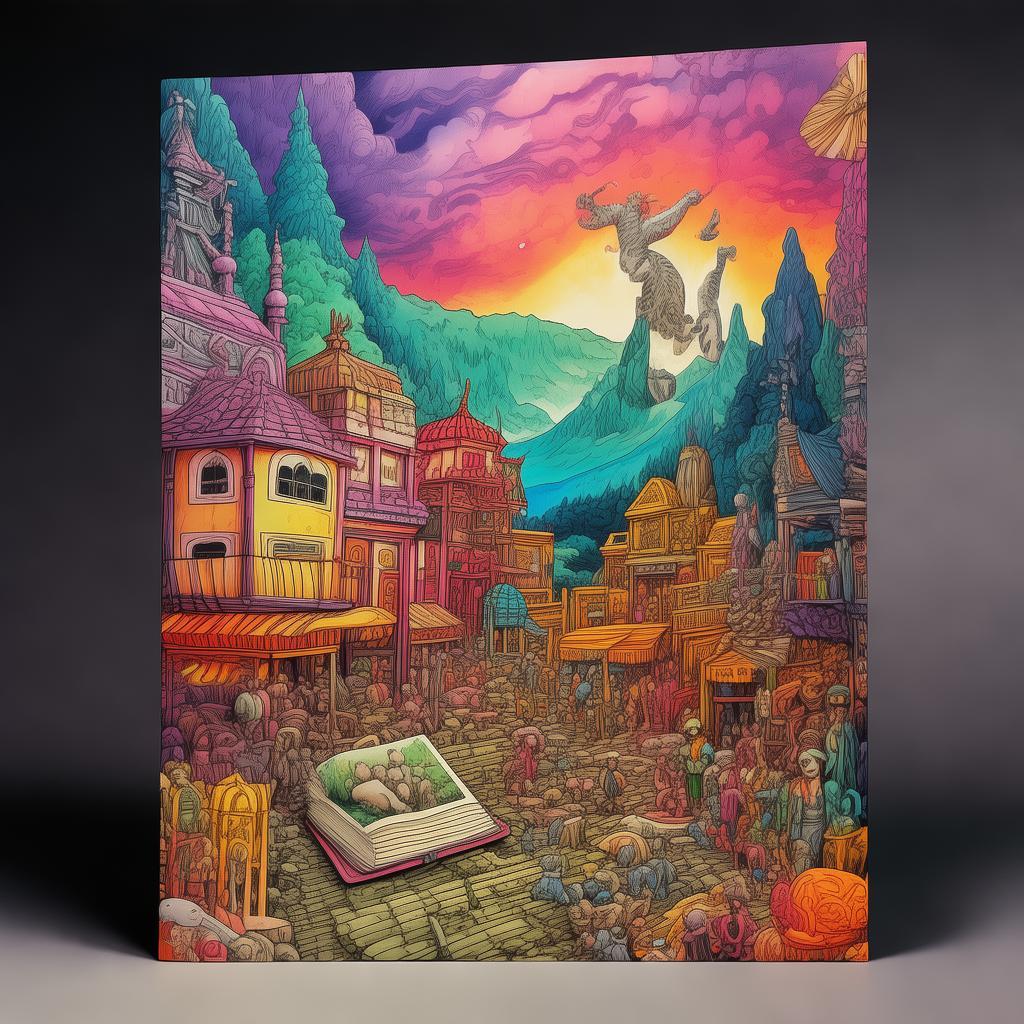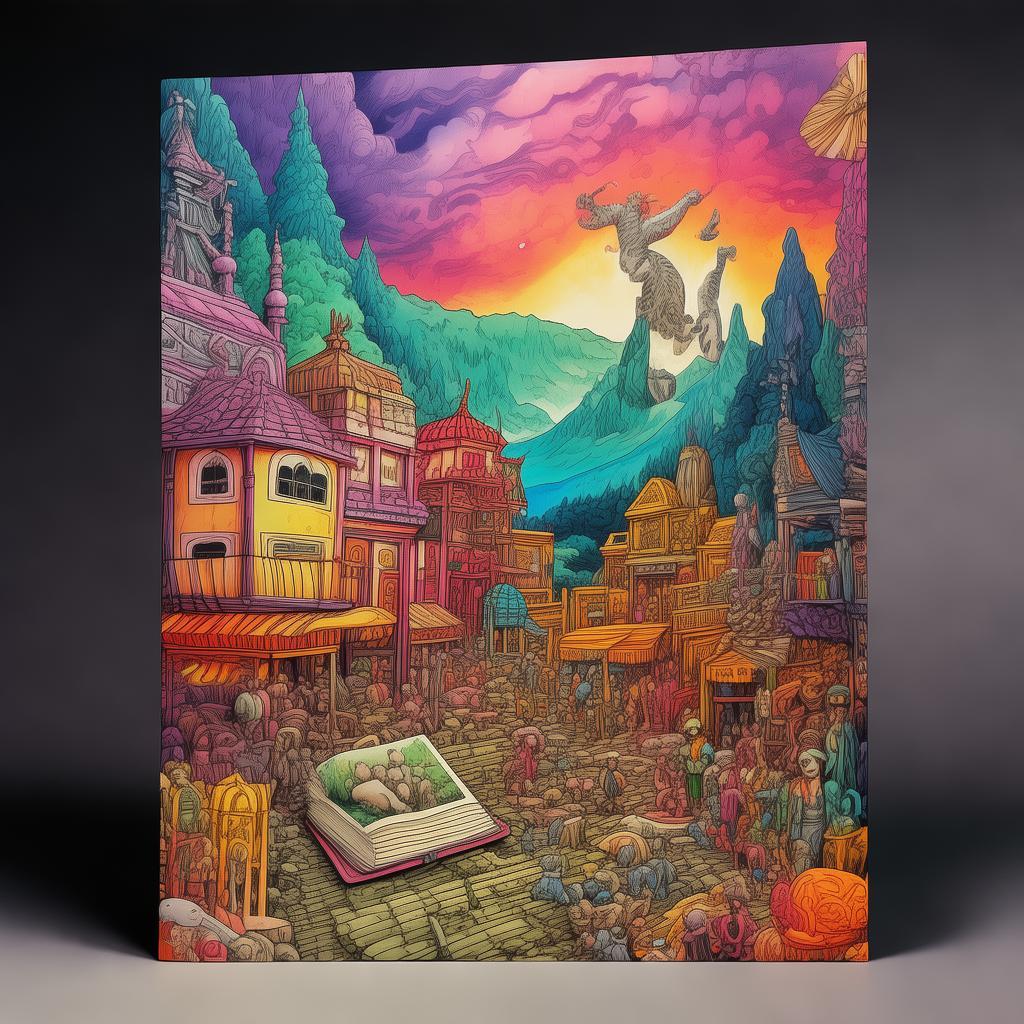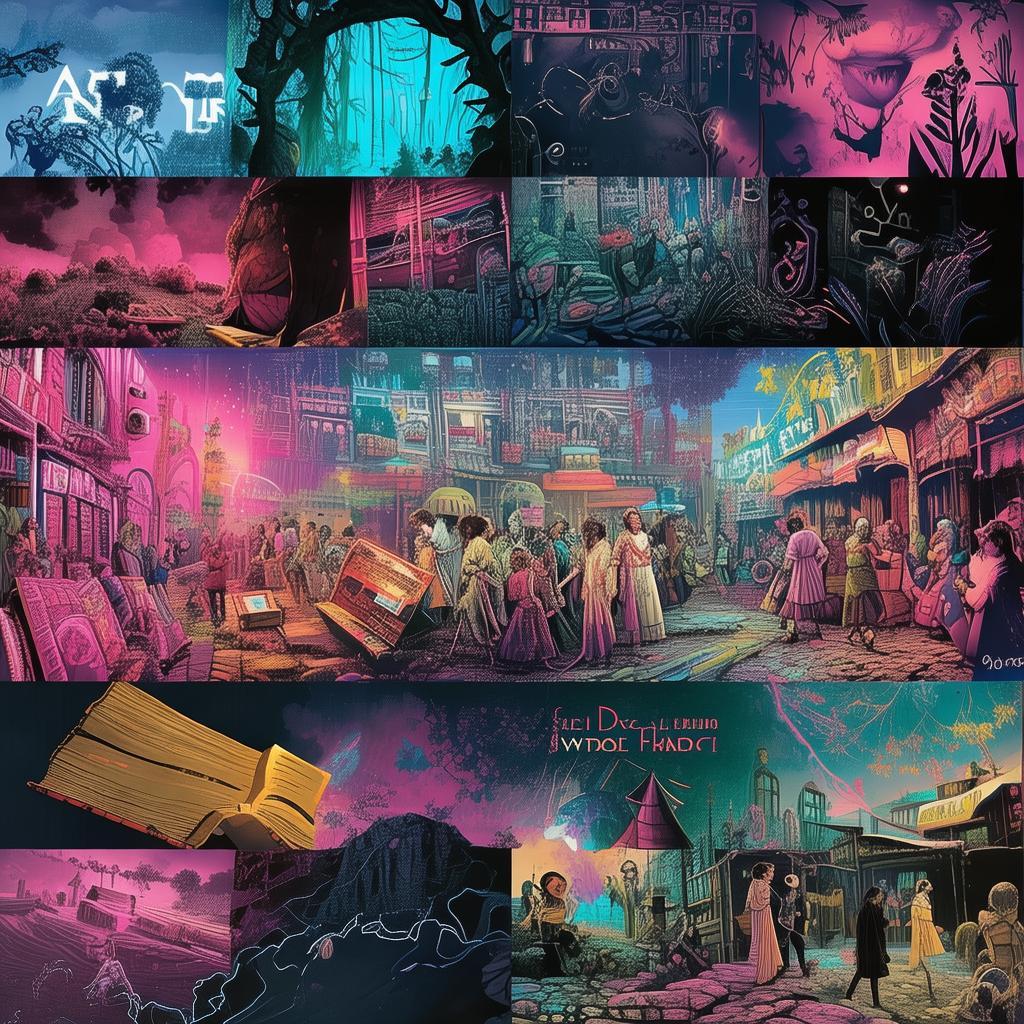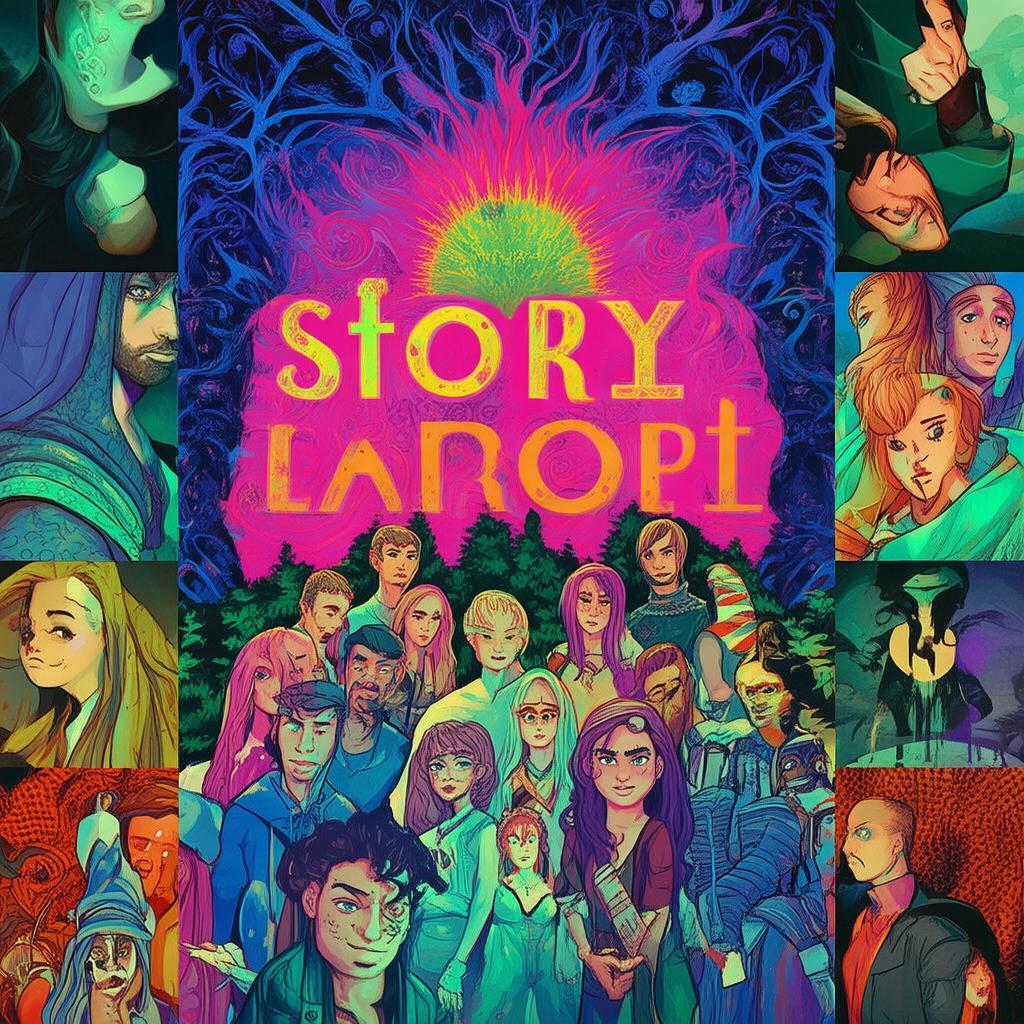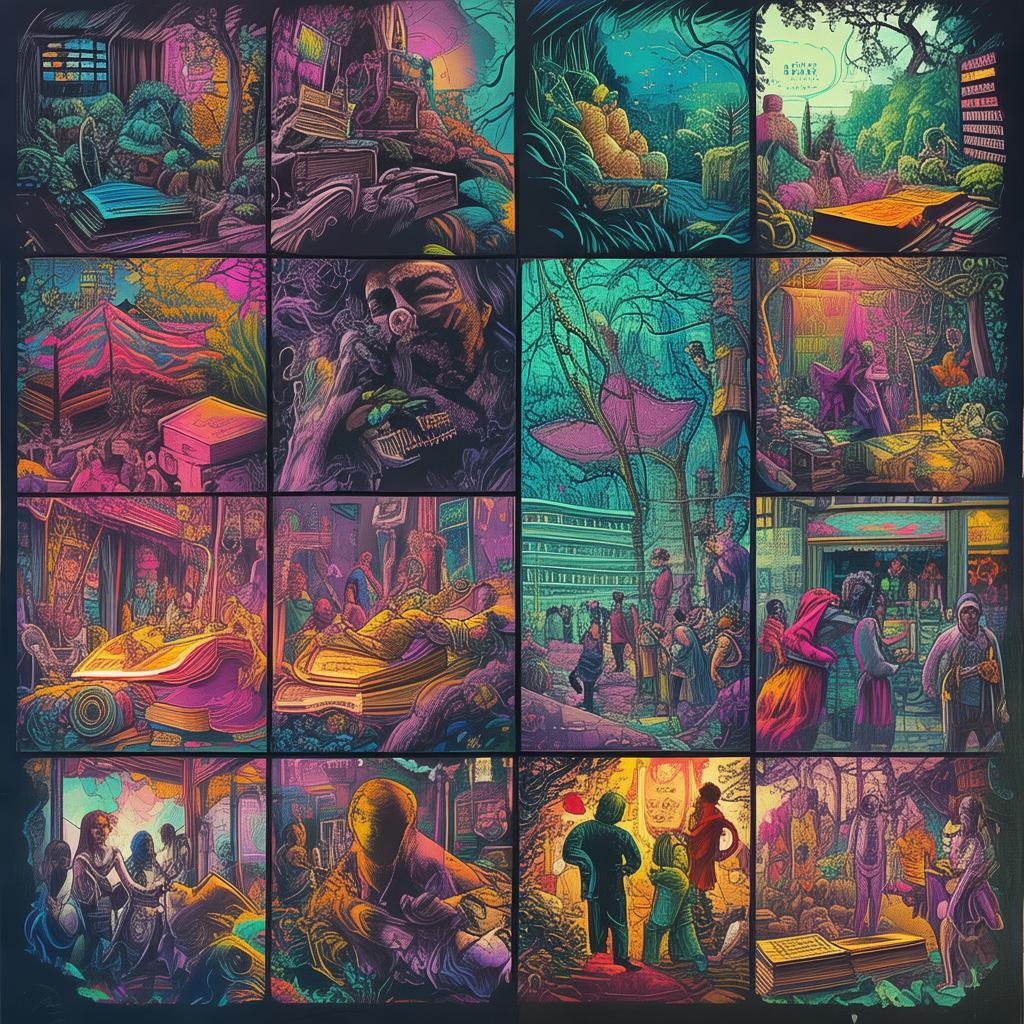First-Time Fable: A Moral Mirroring
The village of Eldergrove was nestled in the heart of the Whispering Woods, a place where the trees whispered secrets of old and the wind carried the melodies of forgotten tales. In the center of the village stood an ancient library, its shelves sagging under the weight of countless tomes, each holding the promise of a different world.
Amara was a girl of twelve, with eyes as deep as the woods and hair that danced in the gentle breeze. She spent her days among the stories, her imagination a canvas of the fantastical and the real. One rainy afternoon, as the rain pattered against the library window, Amara found herself drawn to a dusty, leather-bound book with the title, "The Mirror of Truth."
The book was a fable, a story about a young boy who discovers a magical mirror that shows him not just his reflection, but the moral truth of his actions. The boy, named Lior, is a selfish and greedy child, always eager for more. When he sees the reflection of his actions in the mirror, he is appalled. He learns that his greed is causing pain to others, and he resolves to change.
Amara's heart swelled with curiosity as she read. She found herself reflecting on her own life, wondering if she too was a character in a moral fable. She was known for her kindness, but was she truly selfless, or did she act out of habit?
As the days passed, Amara began to mirror her actions in the same way Lior had mirrored his. She watched her interactions with others, her words, and her thoughts, seeking the truth within the mirror. She found moments of selfishness, hidden behind the veil of her good deeds.
One evening, as Amara sat by the window, she felt a strange sensation. The mirror on her desk seemed to pulse with a life of its own. She reached out, and the mirror's surface shimmered, drawing her in.
She found herself standing in the middle of the village square, the same place where the story of Lior had begun. Before her was a boy, not unlike herself, who was about to take a selfish action. The boy, named Kael, was about to steal a loaf of bread from the village baker, who was struggling to feed his family.
Amara felt a surge of empathy. She knew that if she did nothing, Kael would face the consequences of his actions. She stepped forward, her voice steady, "Kael, why do you think you need to steal that bread?"
Kael looked up, startled. "I need it to feed my family. They're starving."
Amara's heart ached for Kael's plight. She knew the baker's story, of how he had helped her family once upon a time. "I understand," she said softly. "But stealing is not the answer. There must be another way."
Kael looked at her, confusion in his eyes. "What else can I do?"
Amara took a deep breath and whispered the truth she had learned from the mirror. "You can tell the baker your situation. He is kind-hearted, and I'm sure he will help you if he knows."
Kael's face softened, and he nodded. "Thank you. I will."
With that, Kael turned and approached the baker, his hand outstretched. The baker took it, and they began to speak. The baker, touched by Kael's honesty, offered not just bread but also a job, ensuring Kael's family would have enough to eat.
As the sun set, Amara returned to the mirror, her heart full. She realized that the mirror was not just a tool to reflect her actions but a guide to change. She had mirrored Kael's situation, and in doing so, she had found a path to empathy and understanding.
From that day on, Amara became a guardian of the mirror, sharing its lessons with others. She learned that every action has a moral reflection, and that by facing those reflections, one could grow and become a better person.
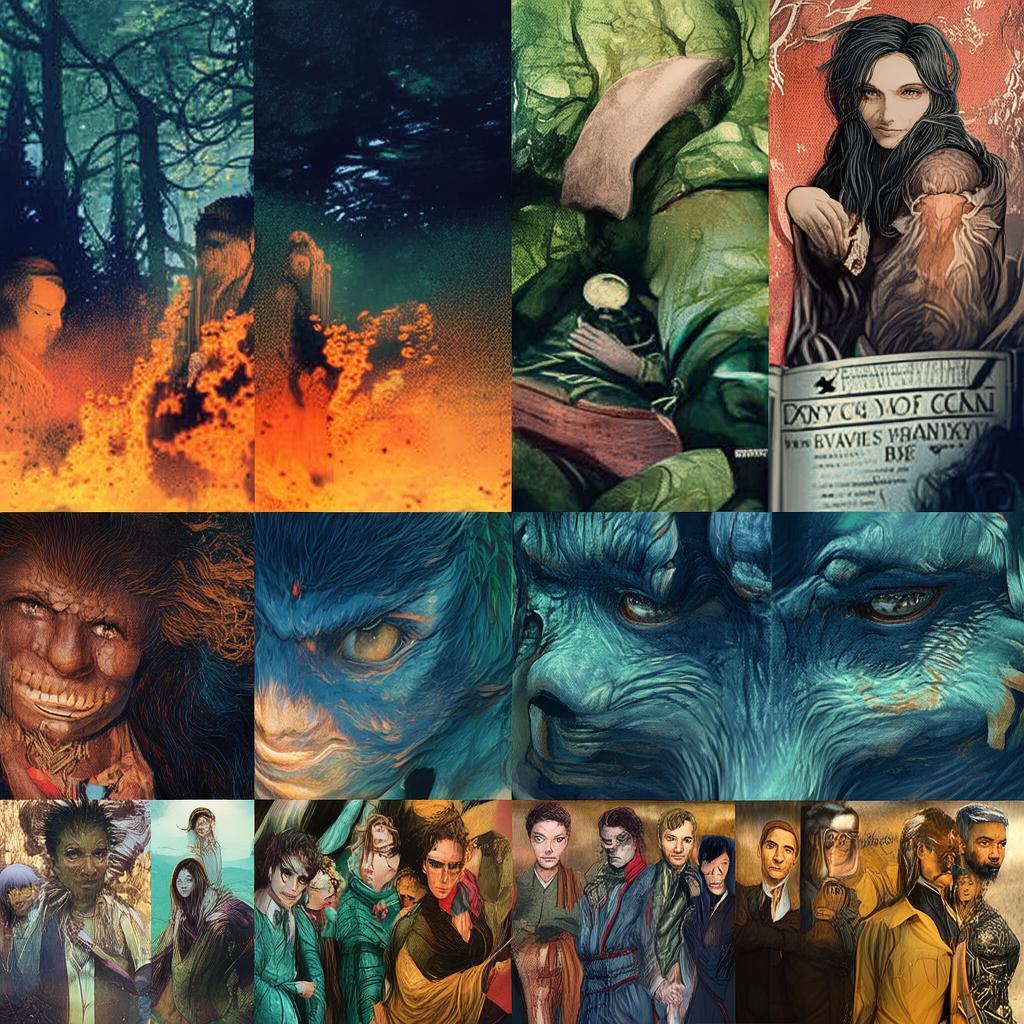
The village of Eldergrove flourished, its people united by the power of stories and the mirror of truth. Amara's journey was not just a personal one but a testament to the transformative power of self-reflection and empathy.
The ending of Amara's story left the village in wonder. They had seen a girl not just read a book but become a living moral fable, using the mirror to change her world and inspire others. And so, the village of Eldergrove whispered its own stories, each one echoing the moral truths that Amara had learned, and the wisdom that she had brought to their hearts.
In the end, the mirror of truth was not just a book; it was a mirror to the soul, reflecting the moral choices we all face, and the transformative power of facing them with honesty and empathy.
✨ Original Statement ✨
All articles published on this website (including but not limited to text, images, videos, and other content) are original or authorized for reposting and are protected by relevant laws. Without the explicit written permission of this website, no individual or organization may copy, modify, repost, or use the content for commercial purposes.
If you need to quote or cooperate, please contact this site for authorization. We reserve the right to pursue legal responsibility for any unauthorized use.
Hereby declared.




